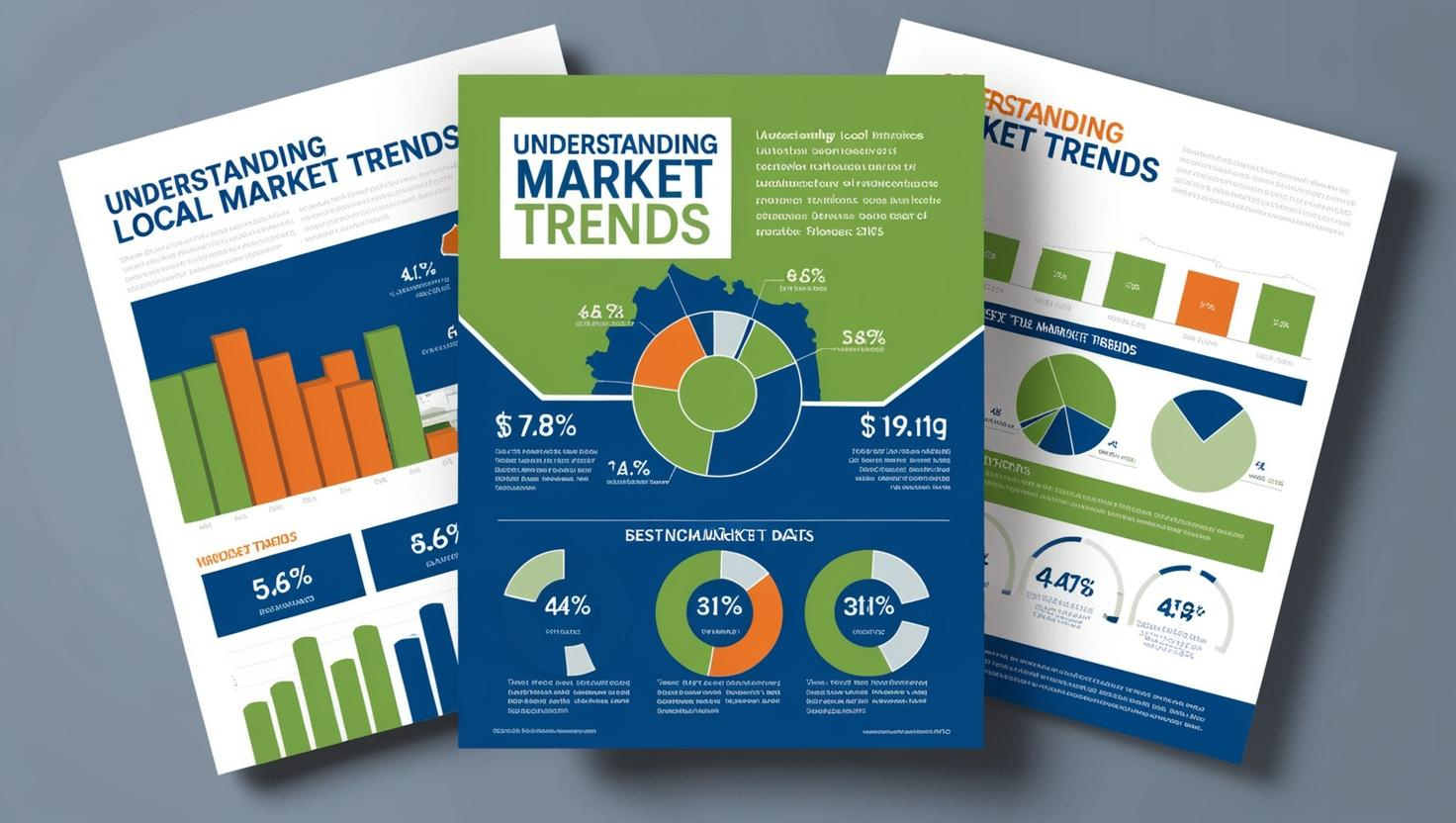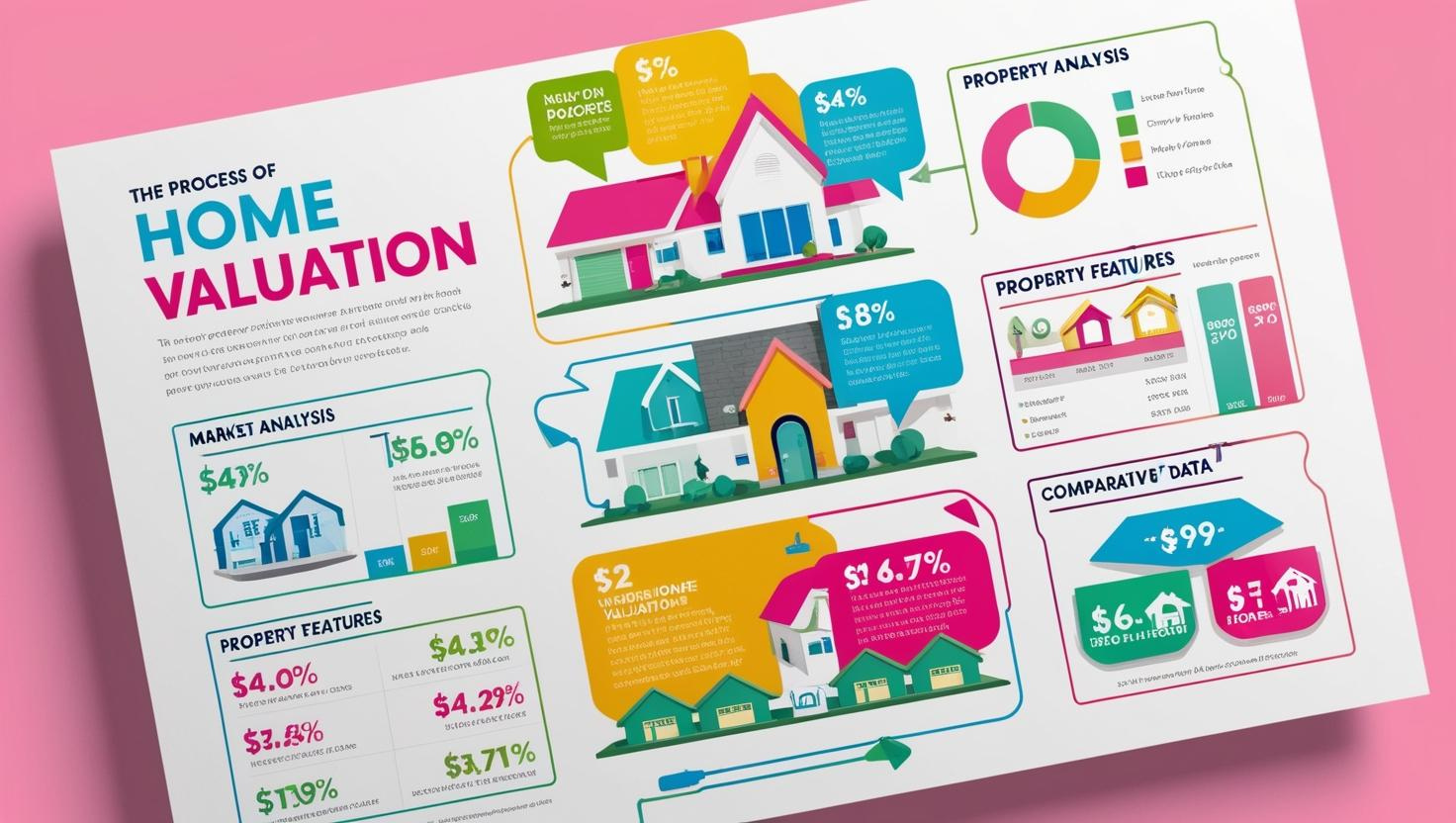Here’s Why a Local Realtor is Essential

Are you on the hunt for your dream home in Chestermere? Look no further! In this article, we will highlight the importance of having a Chestermere realtor by your side to ensure a stress-free home buying experience.
Buying a home is one of the most significant financial decisions you will make in your lifetime. Navigating the real estate market can be overwhelming, especially if you're unfamiliar with the area and its unique dynamics. That's where a Chestermere realtor comes in.
A knowledgeable and experienced real estate agent can provide invaluable guidance throughout the entire home buying process. They have access to extensive market data and can help you identify the properties that align with your needs and budget.
Furthermore, a professional realtor has excellent negotiation skills and can streamline the negotiations between you and the seller, ensuring you get the best possible deal. They also have an extensive network of industry contacts, including mortgage brokers and home inspectors, simplifying the process and saving you time and money.
So, if you want a stress-free home buying experience in Chestermere, don't hesitate to enlist the services of a reliable and trustworthy realtor. They will be your advocate, helping you find your perfect home and guiding you through every step of the journey.
Reach out the PK REALTY at 403-324-5656 today to make your realesteate transaction stress-free. See Homes for sale in Chestermere
Benefits of working with a Chestermere realtor
When embarking on the journey of purchasing a home in Chestermere, the benefits of enlisting the help of a local realtor become abundantly clear. Firstly, a Chestermere realtor possesses an in-depth understanding of the local real estate landscape, providing insights that can significantly enhance your home-buying experience. Their expertise allows them to offer tailored advice based on your specific needs and preferences, ensuring that you find a property that genuinely feels like home. This personalized approach can save you considerable time and effort, as they can quickly filter through available properties to present you with the most suitable options.

Moreover, a Chestermere realtor acts as your advocate throughout the entire process. They work diligently to ensure that your best interests are prioritized, whether that involves negotiating on your behalf or guiding you through the complexities of the buying process. Real estate transactions can often become contentious, but having a professional by your side can ease tensions and facilitate smoother interactions with sellers and their agents. This support not only helps alleviate stress but also fosters a sense of confidence that you are making informed decisions.
Finally, the emotional aspect of buying a home cannot be overlooked. For many, purchasing a house is not just a financial transaction but a significant life milestone. A Chestermere realtor understands this emotional journey and provides the necessary guidance to help you navigate the highs and lows. Their ability to listen to your concerns and offer reassurance can make a world of difference, transforming what could be a daunting process into an enjoyable and fulfilling experience.
Understanding the local market and trends

Navigating the Chestermere real estate market requires a keen understanding of local trends and dynamics, which is where a Chestermere realtor excels. They stay updated on the latest market developments, including housing prices, inventory levels, and neighborhood trends. This knowledge is crucial for buyers, as it helps you identify the best time to make a purchase and understand the potential for property appreciation over time. An informed realtor can provide you with the latest statistics, ensuring that you make decisions based on accurate and timely information.
In addition to general market trends, a Chestermere realtor can give you insights into specific neighborhoods within the area. Each part of Chestermere has its unique characteristics, amenities, and community vibe, which can greatly influence your satisfaction with a property. Whether you're looking for proximity to schools, parks, shopping, or public transportation, a local realtor can help you pinpoint neighborhoods that align with your lifestyle and preferences. This localized knowledge allows you to make a more informed choice that meets both your practical needs and personal desires. See the best neighourhoods in Chestermere to live, invest and thrive in 2025 here.
Furthermore, understanding market trends can help you gauge the competitiveness of a particular property. A skilled realtor will help you analyze comparable sales in the area, providing insight into fair market value. This information is invaluable when it comes to making an offer, as it ensures that you don’t overpay for your new home. By having a realtor's expertise on your side, you can navigate the intricacies of the local market with confidence, ultimately leading to a more strategic and successful home-buying experience.
Reach out the PK REALTY at 403-324-5656 today to make your realesteate transaction stress-free.
Access to exclusive listings and off-market properties
One of the most significant advantages of working with a Chestermere realtor is access to exclusive listings and off-market properties that may not be readily available to the average buyer. Real estate agents often have access to a network of other professionals in the industry, which can lead to opportunities that are not listed on popular real estate websites. These off-market properties can often provide a less competitive environment, allowing buyers to negotiate more favorable terms without the pressure of multiple offers.

Additionally, realtors frequently have relationships with builders and developers, giving them insight into new constructions and upcoming developments in Chestermere. This can be particularly valuable for buyers who are interested in new builds or are looking for homes in emerging neighborhoods. By having a realtor who is well-connected in the local market, you can stay ahead of the curve and discover properties before they hit the mainstream market.
Moreover, a Chestermere realtor can provide tailored property alerts based on your specific criteria, ensuring that you are among the first to know when a new listing becomes available. This proactive approach can be a game-changer in a competitive market, as it allows you to act quickly and make an offer before a property gains significant attention. With a realtor's assistance, you can maximize your chances of finding that perfect home, even in a crowded marketplace.
Negotiating and navigating the home buying process
The negotiation phase of buying a home can be one of the most challenging aspects of the process, but having a Chestermere realtor by your side makes it considerably easier. Realtors are skilled negotiators who understand the nuances of real estate transactions and can advocate effectively on your behalf. They know how to craft compelling offers and navigate counteroffers, ensuring that you secure the best possible deal while safeguarding your interests.

Moreover, a seasoned realtor understands the various factors that can influence negotiations. They can provide insights into the seller's motivations, market conditions, and comparable sales, allowing you to approach negotiations from an informed standpoint. This strategic advantage can make a significant difference in securing favorable terms, whether it’s negotiating the purchase price, closing costs, or repair requests after a home inspection.
In addition to negotiating, a realtor will guide you through the entire home-buying process, from the initial offer to the closing table. They will help you understand each step, ensuring that you are aware of what to expect and what is required from you. This comprehensive support can significantly reduce anxiety and confusion, allowing you to focus on the excitement of finding your new home rather than getting bogged down by the complexities of the transaction.
Properly assessing home values and fair market prices
Understanding the fair market value of a property is crucial to making a sound investment, and a Chestermere realtor can provide invaluable assistance in this area. They have access to comprehensive market data and tools that allow them to conduct thorough comparative market analyses (CMAs). This analysis involves examining similar properties in the area that have recently sold, which helps establish a benchmark for assessing the value of a particular home.

By relying on a realtor's expertise, you can ensure that you are making an informed decision based on current market conditions. They will help you identify any red flags that may indicate a property is overpriced, as well as highlight opportunities where you might find a great deal. This knowledge not only protects your financial interests but also contributes to your overall confidence in the home-buying process.
Additionally, understanding home values goes beyond just the price tag. A skilled realtor will also help you evaluate factors such as location, property condition, and potential for future appreciation. By considering these elements, you can make a more informed decision about whether a property is worth the investment. Ultimately, a Chestermere realtor's ability to properly assess home values can lead to a more satisfying and financially sound purchase.
📢 Thinking of selling? Try our Free Home Evaluation Tool to price your home instantly!
Managing paperwork and legalities
The home-buying process is laden with paperwork and legalities that can be daunting for even the most organized individuals. A Chestermere realtor plays an essential role in managing these documents, ensuring that everything is completed accurately and on time. From the initial offer to closing documents, a realtor will guide you through each step, explaining the significance of each document and what is required from you.

Furthermore, real estate transactions often involve a multitude of legal requirements and regulations that can vary by province and municipality. A knowledgeable realtor is well-versed in these regulations and can help you navigate any complexities that may arise. Their expertise ensures that you remain in compliance with all legal requirements, reducing the risk of potential issues that could derail your purchase.
In addition to managing the paperwork, a Chestermere realtor acts as a liaison between you and other professionals involved in the transaction, such as mortgage brokers, home inspectors, and attorneys. This coordination streamlines the entire process, allowing for effective communication and collaboration. By having a realtor manage these aspects, you can focus on what truly matters: finding and purchasing your dream home.
Building relationships with trusted professionals
In the world of real estate, having a strong network of trusted professionals can make all the difference in ensuring a smooth home-buying experience. A Chestermere realtor comes equipped with established relationships with various industry professionals, including mortgage brokers, home inspectors, contractors, and attorneys. These connections can provide you with reliable recommendations, saving you time and effort in your search for qualified service providers.

For instance, when it comes to securing financing, a realtor can connect you to a reputable mortgage broker who understands the local market and can offer you competitive rates. This introduction can streamline the mortgage approval process, allowing you to focus on other aspects of your home search. Additionally, if you require a home inspection, your realtor can recommend trusted inspectors who will provide thorough evaluations, ensuring that you are fully aware of any potential issues with the property.
Moreover, having access to a network of professionals can help you navigate potential challenges that may arise during the home-buying process. Whether you encounter unexpected repairs or need legal advice, your realtor can direct you to the right experts who can assist you in resolving these matters efficiently. Building relationships with trusted professionals ultimately enhances your experience and provides you with peace of mind as you work toward purchasing your new home.
The role of a Chestermere realtor in finding your dream home
The journey to finding your dream home can be both exhilarating and overwhelming, but a Chestermere realtor serves as your dedicated partner throughout this process. Their primary role is to understand your unique preferences and requirements, which enables them to curate a selection of properties that align with your vision. By taking the time to listen to your needs, a realtor can help you explore options that may not have been on your radar, expanding your possibilities.
Furthermore, a Chestermere realtor acts as your guide in assessing properties. They will accompany you on viewings, providing insights about each home and its potential. Their expertise allows them to identify key features, advantages, and potential drawbacks of a property, helping you make informed decisions. This informed perspective can be invaluable as you weigh the pros and cons of different homes, ultimately guiding you toward a choice that feels right for you.
Additionally, a realtor's commitment to your satisfaction goes beyond simply finding a property. They are invested in ensuring that your overall home-buying experience is positive and fulfilling. This dedication means they will go the extra mile to address any concerns, answer your questions, and provide ongoing support throughout the entire process. With a Chestermere realtor by your side, you can embark on the journey to finding your dream home with confidence and ease.
Making the smart choice by hiring a Chestermere realtor
In conclusion, the process of buying a home in Chestermere can be significantly enhanced by enlisting the services of a knowledgeable and experienced realtor. Their understanding of the local market, access to exclusive listings, and exceptional negotiation skills are just a few of the benefits that can streamline your home-buying experience. Additionally, their ability to manage paperwork and legalities, build relationships with trusted professionals, and provide personalized guidance makes them an invaluable asset in your search for the perfect home.
Ultimately, making the smart choice to hire a Chestermere realtor means investing in your peace of mind. With professional support, you can navigate the complexities of the real estate market with confidence, knowing that you have an advocate by your side every step of the way. As you embark on this exciting journey, remember that the right realtor can not only help you find your dream home but also ensure that the entire process is as stress-free and enjoyable as possible.

So, if you’re ready to take the plunge and search for your ideal home in Chestermere, consider partnering with a trusted realtor who knows the ins and outs of the local market. Their expertise will empower you to make informed decisions, ultimately leading to the successful purchase of a home that meets your needs and aspirations.
Chestermere Homes for Sale: What to Expect
Current Market Trends
Benchmark Home Price: $696,109 (Dec, 2024)
Inventory: 144 days
Popular Property Types: Single-family homes, lakefront properties, and townhouses
Top Chestermere Neighborhoods
Westmere – Ideal for families with parks and schools nearby
Kinniburgh – Premium homes with lake access
Rainbow Falls – Perfect mix of nature and modern amenities
Start Your Chestermere Home Search Today
Finding the perfect home in Chestermere doesn’t have to be stressful. A dedicated Chestermere Realtor can guide you through every step, from viewing listings to closing the deal.
📞Contact us today for expert real estate guidance!
Check out the latest Chestermere homes for sale and start your journey to homeownership.
Check out these additonal articles
Why Every Homebuyer Needs a Mortgage Broker: A Realtor’s Guide to Helping Clients Secure the Best Financing
Buying a Home in Chestermere, Calgary and Surrounding areas? Here’s Everything You Need to Know
Your Trusted Partner in Real Estate
Are you thinking of Selling or Buying your dream home? Connect with our expert team and learn how we make every real estate decision a confident one.
Disclaimer:
The information provided in this blog is for general informational purposes only and should not be considered legal, financial, tax, or investment advice. While we strive to ensure accuracy, real estate laws, market conditions, and regulations change frequently. Readers are encouraged to conduct their own research and consult with qualified professionals such as real estate attorneys, financial advisors, mortgage brokers, or tax experts before making any decisions related to buying, selling, or investing in real estate. We do not assume any liability for actions taken based on the information provided in this blog.
